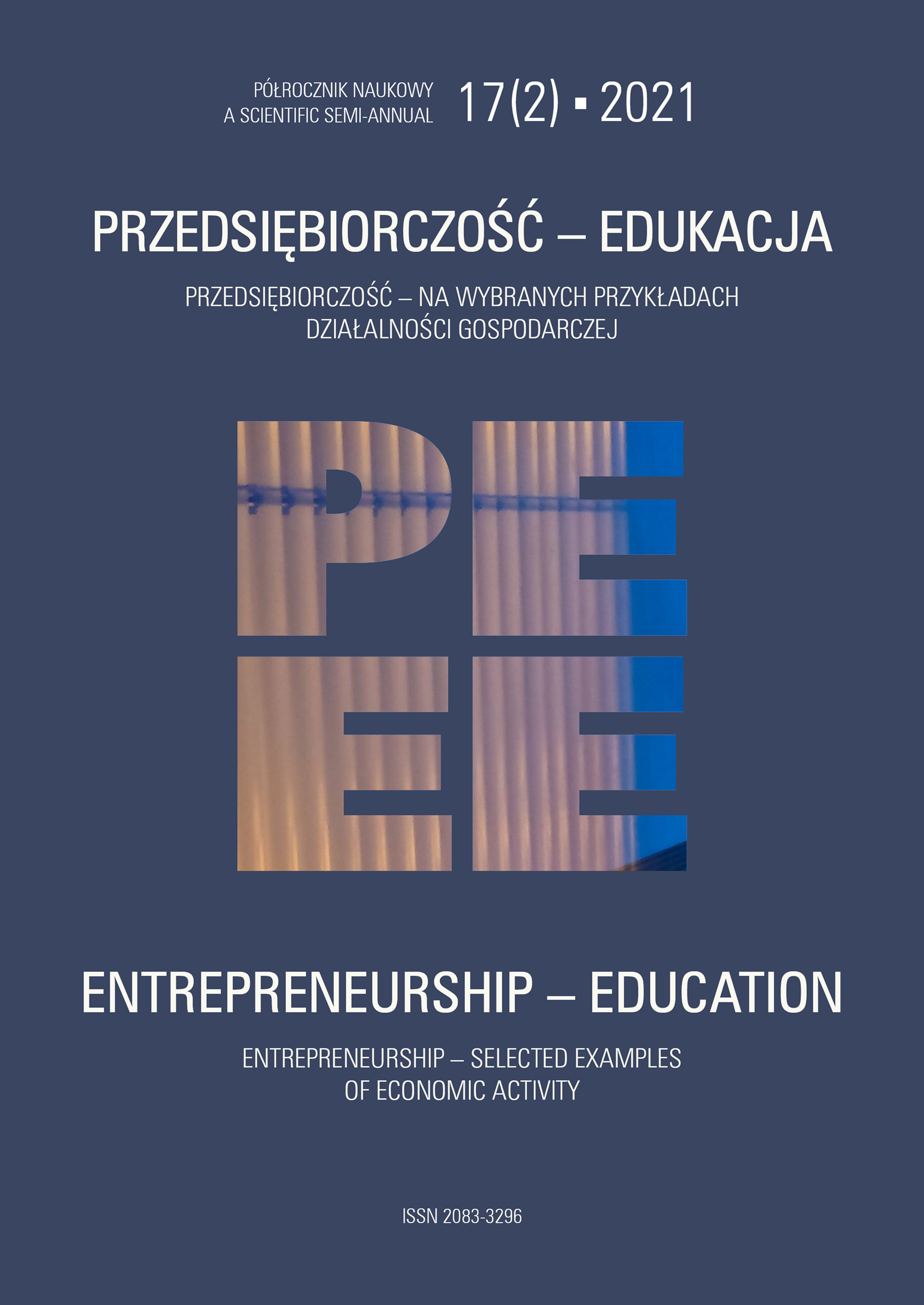Motywy i korzyści z uczestnictwa w zagranicznych praktykach zawodowych uczniów szkół ponadpodstawowych z województwa podlaskiego
DOI:
https://doi.org/10.24917/20833296.172.10Słowa kluczowe:
praktyki zagraniczne, szkolnictwo zawodowe, umiejętności praktyczne, województwo podlaskieAbstrakt
Praktyki zawodowe to ważny etap procesu kształcenia uczniów, mający na celu pogłębienie nie tylko ogólnej wiedzy, lecz także praktycznych umiejętności wykorzystywanych w przyszłej pracy zawodowej. W niniejszym artykule przeanalizowano włączenie praktyk zagranicznych do programów kształcenia szkół o profilu zawodowym. Artykuł opracowano na podstawie badań własnych, przeprowadzonych w czterech szkołach o różnych profilach kształcenia (branża budowlana, branża turystyczna oraz branża beauty), których uczniowie odbyli praktyki zawodowe w przedsiębiorstwach w Wilnie, Kłajpedzie oraz Pradze. Celem autorki jest omówienie oczekiwań uczniów szkół zawodowych oraz korzyści, jakie przynoszą im praktyczne staże zawodowe odbywane w zagranicznych przedsiębiorstwach. Na podstawie potrzeb zgłaszanych przez uczniów przed wyjazdem można stwierdzić, iż są oni zainteresowani przede wszystkim nabyciem konkretnych umiejętności zawodowych. Ponadto część uczniów chciałaby udoskonalić znajomość języka obcego, ze szczególnym uwzględnieniem słownictwa zawodowego. Oczekiwania te świadczą o tym, że staże zagraniczne są ważnym narzędziem służącym do zdobywania wiedzy praktycznej. Z kolei możliwość zweryfikowania nabytych w szkole umiejętności zapewnia uczniom odpowiednią motywację do dalszego kształcenia się.
Bibliografia
Dominik, P. (2017). Kształcenie kadry hotelarskiej w szkołach średnich i wyższych w Polsce na tle wybranych krajów Europy. Ekonomiczne Problemy Turystyki, 38(2), 31–46.
Drogosz-Zabłocka, E., Stasiowski, J. (2019). Kształcenie zawodowe w Polsce – przemiany, organizacja, efekty. W: U. Sztanderska, E. Drogosz-Zabłocka (red.), Wykształcenie zawodowe. Perspektywa systemu edukacji i rynku pracy, Seria Naukowa, t. 9. Warszawa: Fundacja Rozwoju Systemu Edukacji, 66–101.
Grant Thornton. (2017, 17 września). International Business Report. Pozyskano z: http://grantthornton.pl/publikacja/firmom-coraz-mocniej-brakuje-rak-do-pracy
Jeruszka, U. (2015). Kształtowanie i rozwijanie kompetencji przez pracę i praktykę zawodową. Polish Journal of Continuing Education, 3, 142–157.
Kozielska, J. (2018). Vocational school is (not) OK? Vocational school in middle school students’ opinions vs. educational-vocational choices with regard to the situation on the labour market. Kultura – Społeczeństwo – Edukacja, 1, 201–211.
Nowak, J. (2019). Nowa reforma oświaty – szansa czy zagrożenie dla rozwoju szkolnictwa zawodowego? Szkoła – Zawód – Praca, 17, 26–40.
Nowak, J., Pankiv, L. (2018). Zmiany na rynku pracy a efektywność kształcenia w Polsce. Zeszyty Naukowe Politechniki Śląskiej, Seria: Organizacja i Zarządzanie, 123, 316–317.
Pogorzelska, A. (2010). Praktyki zawodowe uczniów szkół zawodowych oraz rola pracodawców w ich realizacji. Problemy Profesjologii, 1, 29–40.
Potrzeby kadrowe przedsiębiorców aglomeracji poznańskiej 2017. (2018). Obserwatorium Gospodarki i Rynku Pracy Aglomeracji Poznańskiej. Pozyskano z: http://www.cdzdm.pl/images/Streszczenie_raportu.pdf
Ratajczak, J. (2018). Rekrutacja pokolenia Z w kontekście zmian demograficznych. Zeszyty Naukowe Polskiego Towarzystwa Ekonomicznego w Zielonej Górze, 8, 125–140.
Pobrania
Opublikowane
Jak cytować
Numer
Dział
Licencja
Prawa autorskie (c) 2021 Przedsiębiorczość - Edukacja

Utwór dostępny jest na licencji Creative Commons Uznanie autorstwa – Bez utworów zależnych 4.0 Międzynarodowe.
Artykuły publikowane są zgodnie z warunkami licencji Creative Commons (CC BY-ND 4.0; uznanie autorstwa-bez utworów zależnych).

